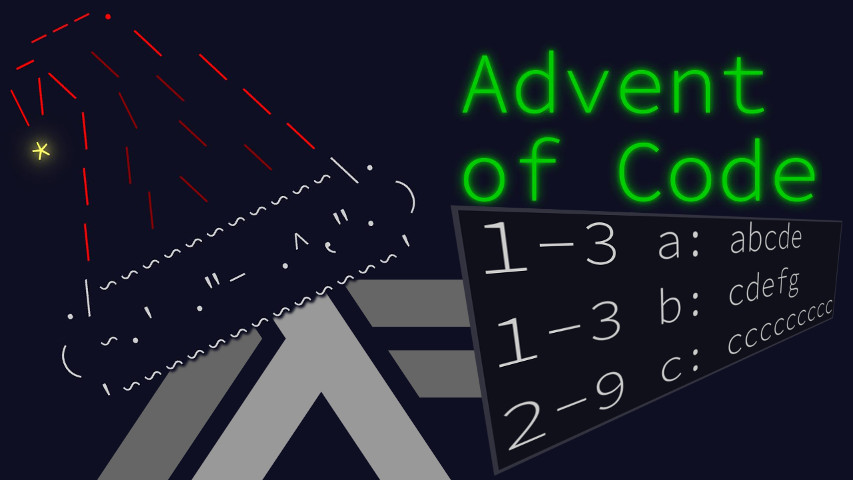Day 2 is the first of the year for one of the typical “one input, two interpretations” AoC puzzles. This post is literate Haskell.
{-# LANGUAGE RecordWildCards #-}
import Data.List
import Text.Parsec
type Parser = Parsec String ()Each record provides two numbers, a character and a password. The interpretation for them varies for both parts, so I’ll store them under generic names.
data Entry = Entry
{ a :: !Int
, b :: !Int
, c :: !Char
, password :: String
}I’ll parse them with a straightfoward Parsec parser.
entry :: Parser Entry
entry = Entry
<$> number
<* char '-'
<*> number
<* char ' '
<*> anyChar
<* string ": "
<*> many1 anyChar
number :: Parser Int
number = read <$> many1 digitAnd a little wrapper.
parseInput :: String -> [Entry]
parseInput =
either (error . show) id .
mapM (parse (entry <* eof) "input") .
linesThe notion of password validity for part 1 is that the character must occur a number of times within the interval.
valid1 :: Entry -> Bool
valid1 Entry{..} = a <= numC && numC <= b
where numC = length (elemIndices c password)For part 2, the logic is a bit more involved: exactly one position indexed by the numbers must be equal to the character. I’ll implement that as reading both, checking for equality to the provided character, and validate by canonicalizing with a sort. Being careful to adjust the indexing’s origin.
valid2 :: Entry -> Bool
valid2 Entry{..} =
sort (map ((== c) . (password !!) . pred) [a,b]) == [False,True]And here’s the main wrapper.
main :: IO ()
main = do
entries <- parseInput <$> readFile "day02.in"
print $ length $ filter valid1 entries
print $ length $ filter valid2 entriesThis concludes today’s solution. See you soon!



